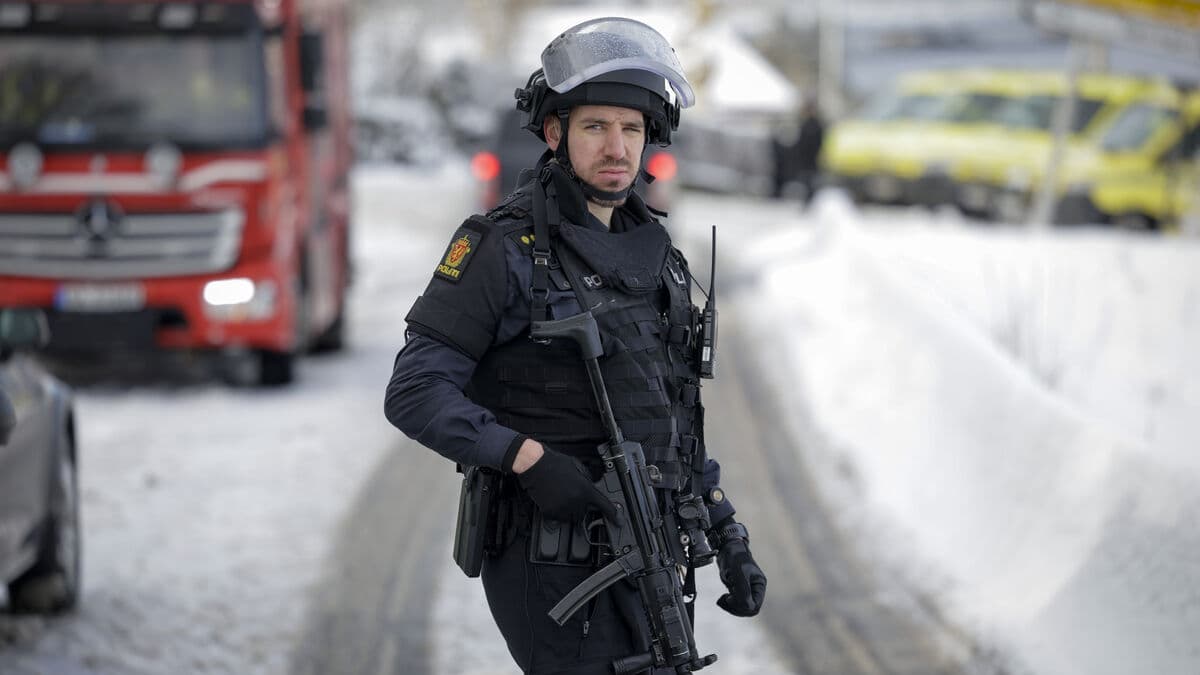Two-year-old Yannis' big dream was to become a police officer. Instead, his life was brutally extinguished on a Wednesday in January, when a mentally ill 28-year-old stabbed him to death during a preschool outing. The act can play a crucial role in Sunday's German election.
Talgoxars chirp in the spring sun when TT visits the crime scene in a park in southern German Aschaffenburg a month later. In the shadow of the naked plane trees that rise towards the sky, hundreds of teddy bears, flower bouquets, and small laminated paper sheets with various texts lie.
People stop, wipe their eyes. Melissa, who is out on a stroller promenade with her son and her mother, puts words to the feeling that many have.
One starts to wonder if one is as safe as one thought one was. If one dares to go out with one's own child, she says.
I work at a preschool myself, one thinks: It could have been our children.
"Crawls under the skin"
A short distance away, Andrea Lindholz has her office. She is a member of the Bundestag for the Christian Democratic CSU, which, together with its sister party CDU, seems to be heading for a clear election victory.
Every act of violence is terrible, but when a group of preschool children is attacked... It crawls under the skin, she says.
The fact that the perpetrator was an asylum seeker from Afghanistan, just like several other perpetrators in other violent acts in Germany recently, has brought migration policy to the top of the agenda.
The Christian Democrats have presented a five-point plan to significantly tighten the rules, including permanent border controls and deportations at the border. Whether the proposals can be implemented legally has been questioned, but Andrea Lindholz points to emergency regulations in EU treaties.
We want to use national laws, because we have a security problem in Germany.
Hopes to push back AFD
The EU's common asylum policy is not enough, she says.
After working with migration policy for eleven years, I'm still waiting for the big European solution that will make everything okay.
Then we, not the migrants themselves or the smugglers, could have decided who comes to Europe. We can let children, women, and people who need protection come, and not large, single-traveling young men who can elbow their way forward.
Andrea Lindholz shares the chancellor candidate Friedrich Merz's hope that the high-nationalist AFD, which is polling around 20 percent, can be pushed back with new policies.
And regardless of AFD, we must bring about a change. Over 60 percent of the population does not want this policy anymore, and no country can in the long run drive a policy that goes against the people's will.
How do you see that your policy can affect people who have come to Germany to seek protection, without committing violent acts?
It's primarily about criminals and people who are a threat. Secondly, about groups that have not integrated, who have no job and have not learned the language.
Police car was favorite toy
In a corner at home in the children's room, Yannis' blue backpack with Paw Patrol motifs hangs, shows pictures from a German TV team that visited the family. The toys lie in a small pile – including a police car that was his favorite, an older relative tells Bild.
When he played with the police car, he said "police – I'm a police officer". When his mother asked him if he wanted to become a police officer, he replied happily: "Yes!"
The act in Aschaffenburg took place on Wednesday, January 22, when a mentally ill 28-year-old attacked a group of preschool children on an outing.
Two-year-old Yannis was stabbed to death. A 41-year-old family father, who intervened to protect the children, was also killed, and three people were seriously injured.
The perpetrator was an asylum seeker from Afghanistan. He had been arrested by the police several times for various crimes and had been taken into psychiatric care at least three times. At the time of the crime, he was on the loose, as he was not considered a threat, and had also agreed to voluntarily return to his home country.
The attack has sparked a fierce debate about migration policy in Germany. According to a survey commissioned by public service broadcaster ARD in January, 68 percent of Germans want to accept fewer refugees.






